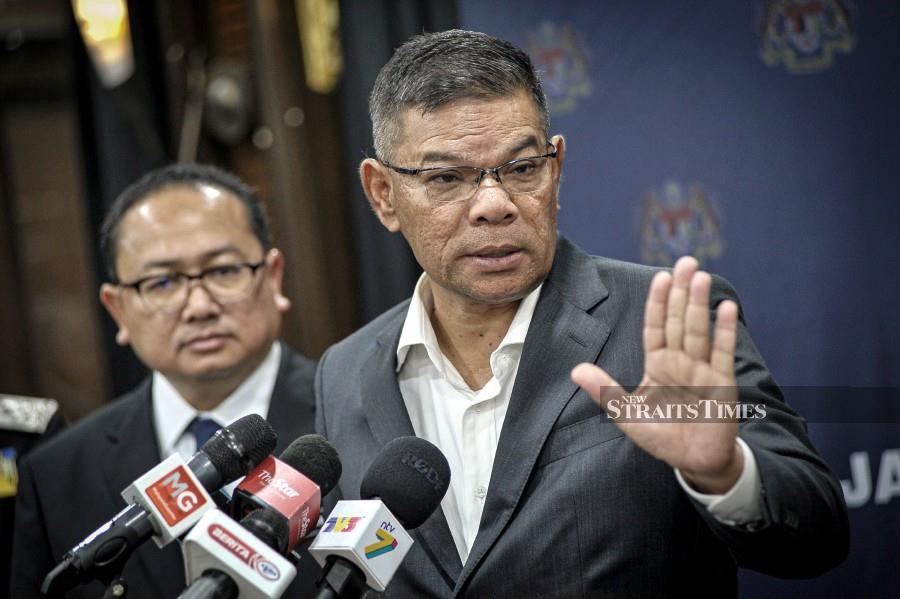KUALA LUMPUR: The Home Minister, Datuk Seri Saifuddin Nasution Ismail, is facing calls to halt the proposed amendments to citizenship laws, described as regressive and detrimental to the future of stateless individuals in the country.
In a statement, the Malaysian Citizenship Rights Alliance criticised the amendments for being introduced without input from civil society organisations (CSOs), stakeholders, and affected communities.
Despite acknowledging Saifuddin's success in processing over 10,000 citizenship applications this year, the group emphasised that approvals still depend on the Minister's discretion rather than a comprehensive solution.
The group urged Saifuddin to address the deficiencies within his ministry, citing consistent failures in assisting stateless individuals and their families due to internal standard operating procedures and deliberate non-observance of express provisions of the Federal Constitution.
"The proposed constitutional amendments will neither reduce the number of cases nor streamline the processing of applications and will only exacerbate the issue of statelessness by exponentially increasing the number of applications and leaving more children exposed and vulnerable to abuse, exploitation and corruption.
"CSOs have consistently advocated that what is urgently needed is a proper and clear process to determine statelessness within the Home Ministry, also known as a 'Statelessness Determination Procedure (SDP)', such a procedure would address the concerns that have been raised by the Home Ministry, without depriving vulnerable groups of their basic rights," it said.
In the proposed constitutional amendments, the Malaysian government plans to table amendments that would solve the citizenship problems plaguing the overseas-born children of Malaysian women with foreign husbands.
There are five other proposed amendments to Schedule 2 of the Federal Constitution that they say would create a large pool of stateless children.
Under one such amendment, abandoned babies and children will no longer be entitled to automatic citizenship, including children born out of wedlock to Malaysian men, stateless children adopted by Malaysian parents and families with generations of stateless children born in Malaysia.
It also called for the minister to personally meet the applicants to understand the consequences of the delays in obtaining citizenship so that he would understand them from a humanitarian perspective rather than an administrative one.
They also claimed that the ministry had consistently refused to engage with CSOs, failing to receive feedback or address their concerns, even during a meeting organised by the Parliamentary Special Select Committee (PSSC).
Despite an initial information session, the Ministry allegedly refused further meetings or feedback, leaving the concerns of CSOs unaddressed.
"More importantly, through the meeting organised by the PSSC on Women and Children Affairs and Social Development alongside the Home Ministry delegation, the CSOs' concerns and request for supporting data warranting the regressive amendments were (allegedly) blindsided and unaddressed," it said.


